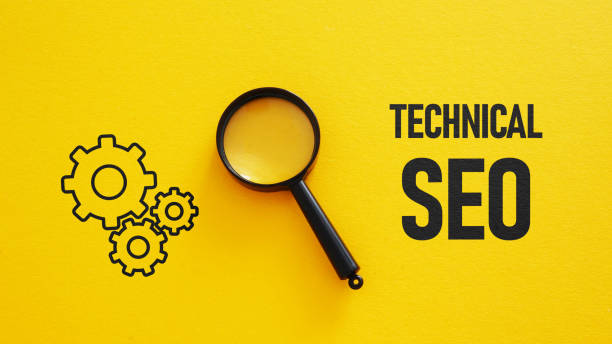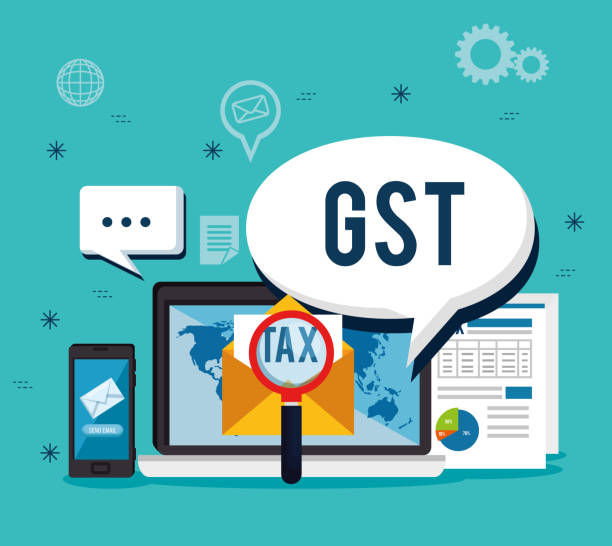Introduction to the Concept of SEO and Its Importance

In today’s digital world, an online presence is vital for every business.
But mere presence does not mean being seen.
This is where the concept of #SEO or #Search_Engine_Optimization becomes important.
#SEO is a complex but essential process that helps your website achieve a higher ranking in search engine results like Google.
The main goal of SEO is to increase visibility, attract organic traffic, and ultimately, increase customers and sales.
This process involves a set of techniques and strategies, ranging from keyword analysis to building high-quality backlinks.
Without SEO, even the best content and products might get lost among the vast amount of information on the web.
This topic, which has many educational aspects, is not just a science but also an art that requires a deep understanding of user behavior and search engine algorithms.
Success in SEO significantly increases inbound traffic and also improves your business’s credibility.
Therefore, any digital marketing strategy would be incomplete without considering the principles of SEO.
The importance of this field is such that many companies hire specialized teams to implement and monitor it.
Did you know that 85% of customers check your company’s website before any interaction?
With Rasawweb, build a company website that deserves your credibility.
✅ Increase credibility and customer trust
✅ Attract high-quality leads
⚡ Get a free website design consultation
How Search Engines Work and the Importance of Algorithms

To understand SEO more deeply, one must become familiar with how search engines work.
Search engines like Google, Bing, and Yahoo work through three main stages: Crawling, Indexing, and Ranking.
In the crawling stage, search engine robots, called spiders, follow links and find new or updated pages.
This process covers a vast network of information and allows the search engine to discover web content.
After crawling, it’s time for indexing; in this stage, the search engine analyzes the content of pages and stores it in a massive database.
This database is, in fact, a comprehensive index of all information available on the web.
An explanation about this can point to the complexities of this process, which includes processing text, images, and videos.
Finally, the ranking stage begins; when a user searches for a term, the search engine, using its complex algorithms, selects the best and most relevant pages from its index and displays them in order based on hundreds of ranking factors.
These algorithms are constantly changing and evolving and include factors such as content quality, page loading speed, user experience, and backlinks.
Understanding these algorithms is essential for every SEO specialist to implement effective strategies and help websites stand out in the intense digital competition.
On-Page SEO Techniques

On-Page SEO refers to a set of actions performed within the website itself to improve its ranking in search results.
These actions include optimizing content, site structure, and HTML codes.
The first and perhaps most important element in On-Page SEO is keyword research and their proper use in the Title Tag, Meta Description, and main text.
Your content must be specialized, rich, and relevant to target keywords so that both users and search engines find it useful.
Also, optimizing images (using appropriate Alt Text), using correct headers (H1, H2, and H3) to organize content, and improving URL structure are other key elements of On-Page SEO.
Page loading speed is also a crucial factor; slow pages lead to poor user experience and consequently lower rankings.
Using internal links to other related pages on your website helps search engines better understand your site’s structure and distribute page authority among different pages.
These actions provide a comprehensive guide for anyone who wants to strengthen their online presence.
To achieve the best results, complete coordination between all these factors is essential.
Below, some of the most important On-Page SEO factors and their impact are mentioned:
| On-Page SEO Factor | Description | Importance in SEO |
|---|---|---|
| Title Tag | The page title displayed in the browser tab and search results. | Very High; the first thing a user and search engine see. |
| Meta Description | A short summary of the page content. | Medium; direct impact on CTR (Click-Through Rate). |
| Keywords | Phrases that users use to search. | Very High; the basis of content-search relevance. |
| Headings (H1, H2, H3) | Internal content headings for organization. | High; improves readability and content structure. |
| Internal Links | Linking from one page to another within the same website. | High; authority distribution and improved crawling. |
Technical SEO and Its Role in Ranking Improvement

Technical SEO refers to a set of optimizations that focus on the infrastructure and technical aspects of a website to improve its crawling and indexing by search engines.
This part of SEO is often invisible to users but plays a vital role in the site’s visibility.
Site loading speed is one of the most important factors in Technical SEO; users expect pages to load quickly, and Google also prefers faster websites.
Optimizing images, compressing codes (CSS, JavaScript), and using caching can help increase speed.
Mobile-Friendliness is also of high importance, as most searches today are conducted via mobile devices.
A website must be properly compatible with different screen sizes.
Additionally, Structured Data (Schema Markup) helps search engines better understand your site’s content and may lead to the display of Rich Snippets in search results, which is more appealing to users.
XML Sitemaps and Robots.txt files are also important tools that guide search engines on which pages to crawl and which to ignore.
An explanation of these tools shows how one can have more control over how search engine robots interact with the site.
Improving site security (HTTPS) is also a ranking factor and builds user trust.
Any issue in this area can severely impact a website’s SEO performance, so continuous monitoring and optimization of technical aspects is a specialized and essential task.
Are you worried about losing customers because you don’t have a professional e-commerce site?
With e-commerce site design by Rasawweb, forget these worries!
✅ Significant increase in sales and visitor-to-customer conversion rate
✅ Professional and user-friendly design that builds customer trust
⚡ Get a free consultation from Rasawweb
Off-Page SEO and the Importance of Backlinks

Off-Page SEO refers to all actions performed outside your website with the aim of improving its ranking in search results.
The most important and influential aspect of Off-Page SEO is Link Building.
Backlinks, or inbound links from other websites to yours, are considered a vote of confidence for your content.
The higher the number and quality of backlinks, the more your website’s Domain Authority increases with search engines, leading to a better ranking.
But not every link is useful; high-quality backlinks from reputable and relevant sites have a much greater impact than low-quality links.
Link-building strategies include creating valuable content that naturally attracts links, engaging on social media, press releases, and connecting with bloggers and influencers.
Social media activity, although not a direct ranking factor, can help increase content visibility and thus attract natural links.
This is an entertaining aspect of SEO that requires creativity and social interaction.
Optimizing local business listings (like Google My Business) is also an important part of Off-Page SEO for physical businesses.
Being informed and up-to-date in this field is very important, as algorithms and best practices are constantly changing.
Off-Page SEO requires a long-term and continuous strategy and should not be overlooked, as it complements On-Page SEO, and without it, achieving high rankings would be very difficult.
Content Strategy and Its Role in SEO

Content is king; this statement is truer than ever in the world of SEO.
A strong content strategy is the backbone of any successful SEO campaign.
The main goal of content production in SEO is to provide value to users and answer their informational needs.
This content can be in the form of articles, blog posts, videos, infographics, podcasts, and even thought-provoking content that encourages users to think and interact.
Your content must be comprehensive, accurate, and unique to be appealing to users and to be recognized as an authoritative source by search engines.
Keyword research is the first step in developing a content strategy.
You should find keywords that not only have high search volume but also align with your users’ search intent.
After that, produce content around these keywords naturally and without overstuffing (keyword stuffing).
Regularly updating old content and adding new content sends a positive signal to search engines that your site is active and dynamic.
Producing Evergreen Content that remains relevant and useful for a long time is also a smart strategy.
Your content should be educational and guidance-oriented, helping users solve their problems or find the information they need.
A precise analysis of competitors and the type of content they produce can help you find content gaps and new opportunities for SEO.
Finally, promoting content through social media and email marketing is also crucial for increasing visibility and attracting traffic.
Measuring and Analyzing SEO Performance

One of the most important stages in any SEO campaign is measuring and analyzing its performance.
Without accurate data, you cannot understand which strategies are effective and which need improvement.
Tools like Google Search Console and Google Analytics are essential for this purpose.
Google Search Console gives you information about how your site interacts with the search engine, the keywords you are visible for, indexing issues, and backlinks.
Google Analytics also provides comprehensive data on site traffic, user behavior, traffic sources, and conversion rates.
Key Performance Indicators (KPIs) in SEO include keyword rankings, organic traffic, Click-Through Rate (CTR), Bounce Rate, Dwell Time, and Conversion Rate.
A deep analysis of these metrics can reveal the strengths and weaknesses of your SEO strategy.
For example, if organic traffic is high but the conversion rate is low, you might need to optimize the user experience (UX) or the landing page content.
Also, monitoring your competitors and analyzing their SEO strategies can provide valuable insights.
Regular reporting and adjusting strategies based on data are key to sustainable success in SEO.
This is a specialized process that requires high precision and analytical knowledge.
The following table lists the most important tools and key metrics in SEO analysis:
| Tool/Metric Name | Primary Use | Importance in SEO Analysis |
|---|---|---|
| Google Search Console | Monitoring site performance in Google Search, indexing issues. | Very High; direct data from Google. |
| Google Analytics | Analyzing user behavior, traffic sources, conversion rates. | Very High; comprehensive understanding of site performance. |
| Keyword Ranking | Site’s position for target keywords. | High; indicates the effectiveness of the keyword strategy. |
| Organic Traffic | Number of visitors from search engines. | Very High; the main goal of SEO. |
| Bounce Rate | Percentage of visitors who view only one page. | Medium; indicates the quality of user experience and content. |
| Conversion Rate | Percentage of visitors who complete a specific goal. | Very High; the ultimate metric of SEO commercial success. |
Local SEO and SEO for Online Stores

Local SEO is crucial for businesses that offer their services or products to customers in a specific geographical area.
This type of SEO helps your business rank at the top of local searches such as “best restaurant in Tehran” or “computer repair near me”.
The most important tool for local SEO is Google My Business, which allows you to manage your business information, including address, phone number, working hours, and images.
Optimizing this profile, collecting customer reviews, and ensuring NAP (Name, Address, Phone) consistency across all online directories are key principles of local SEO.
On the other hand, SEO for online stores or E-commerce SEO also has its own specific challenges and opportunities.
In an online store, optimizing product and category pages is of high importance.
Using appropriate keywords in product descriptions, titles, and meta descriptions, along with high-quality images and customer reviews, can help with better ranking.
Product page loading speed, a smooth user experience in the buying process, and the use of structured data to display product information (such as price, availability, and rating) in search results are other crucial factors.
Specialized and guiding content in the store’s blog can help attract traffic through informational keywords and ultimately convert them into customers.
A thought-provoking content about how to use products can encourage visitors to stay longer on the site and discover other products.
Do you dream of a thriving online store but don’t know where to start?
Rasawweb is your comprehensive e-commerce website design solution.
✅ Attractive and user-friendly design
✅ Increase sales and revenue⚡ Get a free consultation
The Future of SEO and Emerging Trends

The world of SEO is not static and is constantly evolving.
Understanding emerging trends is vital for every SEO specialist to keep their strategies up-to-date.
One of the most important future trends is Artificial Intelligence (AI) and Machine Learning, which play an increasing role in search engine algorithms.
Algorithms like Google RankBrain and BERT help the search engine better understand user search intent and provide more relevant results.
This means that content should focus more on user intent and providing comprehensive and natural answers, rather than merely on keywords.
Voice Search is another trend that is growing significantly.
With the proliferation of voice assistants like Siri, Google Assistant, and Alexa, people are increasingly using natural and conversational phrases for search.
This highlights the need to optimize content for longer, more conversational queries.
User Experience (UX) will also become increasingly important.
Google consistently emphasizes factors like Core Web Vitals (loading speed, interactivity, and visual stability of the page).
Being informed and aware of these changes is vital for every SEO specialist.
Additionally, video content and podcasts are growing in popularity, and optimizing them for search will be a big opportunity for the future of SEO.
An analysis of these trends indicates that SEO is moving towards a deeper understanding of human behavior and providing the best possible experience.
Common SEO Mistakes and Ways to Avoid Them

Despite the importance of SEO, many businesses unintentionally make mistakes that can harm their rankings.
One of the most common mistakes is ignoring keyword research.
Choosing inappropriate keywords or not using them correctly can cause even the best content to go unnoticed.
Another mistake is low-quality content or plagiarism from others’ content.
Google penalizes duplicate content, and low-quality content drives users away.
Therefore, always focus on producing original, comprehensive, and valuable content.
Lack of attention to technical SEO is also a major problem.
Slow site speed, lack of mobile compatibility, and indexing issues can prevent your site from being seen, even if you have excellent content.
The guidance in this area is to regularly check technical SEO tools like Google Search Console.
Another mistake is spammy link building or buying backlinks from low-quality sites.
These methods might have an impact in the short term, but in the long term, they lead to penalties from Google and loss of ranking.
Instead, focus on natural and high-quality link building.
Ignoring User Experience (UX) is also a fatal mistake.
If users do not have a good experience after entering your site (e.g., the site is complex or navigation is difficult), they will quickly leave, and this high bounce rate sends a negative signal to search engines.
Being educational and continuously aware of the best SEO practices is key to preventing these mistakes.
Frequently Asked Questions
| Question | Answer |
|---|---|
| What is SEO? | SEO, or Search Engine Optimization, is a process for increasing the quality and quantity of website traffic by improving the site’s ranking in natural (organic) search engine results like Google. |
| What are the main types of SEO? | SEO is divided into three main categories: On-Page SEO, Off-Page SEO, and Technical SEO. |
| What does On-Page SEO include? | On-Page SEO includes optimizing elements within the website, such as keywords, Title Tag, Meta Description, content, URL structure, images, and internal links. |
| What is Off-Page SEO? | Off-Page SEO refers to activities performed outside the website that help improve its ranking, such as Backlink Building, social media marketing, and Brand Mentions. |
| What is Technical SEO? | Technical SEO deals with optimizing the technical aspects of a website to help it be crawled and indexed better by search engines. This includes site speed, mobile-friendliness, site structure, Sitemaps, and Robots.txt files. |
| What role do Keywords play in SEO? | Keywords are phrases that users enter into search engines. Proper and targeted use of relevant keywords in content and site elements helps search engines understand your page’s topic and display it for relevant searches. |
| What is a Backlink and why is it important? | A backlink, or inbound link, is a link from one website to another. Backlinks act as a “vote of confidence” from other sites for search engines and play a significant role in a site’s authority and ranking improvement, especially if they are from reputable sites. |
| What impact does quality content have on SEO? | Quality, relevant, comprehensive, and unique content not only attracts and retains users but also shows search engines that your page is valuable. This helps improve rankings, reduce Bounce Rate, and increase user dwell time on the site. |
| Why is site loading speed important for SEO? | Site loading speed is an important ranking factor for Google. Faster sites provide a better user experience, have lower bounce rates, and are preferred by search engines. |
| Is SEO a one-time process? | No, SEO is a continuous and long-term process. Search engine algorithms are constantly changing, competition is increasing, and site content also needs updating. Therefore, SEO requires continuous monitoring, analysis, and optimization. |
And other services of Rasawweb Advertising Agency in the field of advertising
Smart Website Development: Revolutionize sales by customizing user experience.
Smart Direct Marketing: A fast and efficient solution for user engagement with a focus on SEO-driven content strategy.
Smart Link Building: A professional solution for digital branding with a focus on precise audience targeting.
Smart Brand Identity: A new service for enhanced customer behavior analysis through the use of real data.
Smart Social Media: Designed for businesses seeking campaign management through precise audience targeting.
And over hundreds of other services in the field of internet advertising, advertising consultation, and organizational solutions
Internet Advertising | Advertising Strategy | Advertorials
Resources
SEO Basics
Content Marketing and SEO
Technical SEO Guide
Link Building Strategies
? Are you ready to transform your business in the digital world? Rasawweb Afarin Digital Marketing Agency, by providing comprehensive services including professional e-commerce website design, Search Engine Optimization (SEO), and advertising campaign management, is your partner on the path to achieving online success. Contact us today and secure the digital future of your business.
📍 Tehran, Mirdamad Street, Next to Central Bank, Southern Kazeroun Alley, Ramin Alley, No. 6




